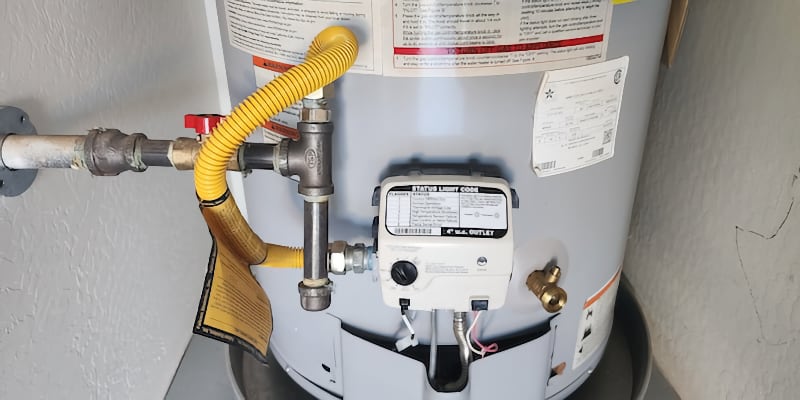Queen Creek , AZ

Water Heater Maintenance: Maximizing Longevity and Efficiency
When it comes to home appliances, your tank-style water heater is one of the unsung heroes. It quietly provides hot water for your showers, dishes, and laundry, often without a second thought. However, like all appliances, it requires regular maintenance to ensure it continues operating efficiently and lasts as long as possible. In this guide, we’ll cover the basics of water heater maintenance, discuss the average life expectancy of a water heater, and explore some upgrades you can consider during installation to extend the life and efficiency of your unit.
Understanding the Average Life Expectancy of a Tank Style Water Heater
In Arizona, a traditional tank-style water heater lasts between 7 to 10 years. However, with a few strategic upgrades and proper maintenance, you can extend this lifespan to 15 years or more. In addition to those things, the longevity of your water heater can be affected by other factors, such as water pressure and water quality.
Essential Maintenance Tips to Prolong Your Water Heater’s Life
1. Water Pressure:
High water pressure to your home or business puts undue stress on your water heater and plumbing system. Making sure you maintain safe water pressure by having a pressure regulator valve installed is key.
2. Regular Flushing:
Sediment build-up is a major cause of water heater inefficiency and eventual failure. Flushing the tank annually helps remove sediment and keeps the heating elements in good working order.
3. Check the Anode Rod:
The anode rod is a sacrificial component designed to attract corrosive elements, thereby protecting the tank from rust. Inspecting the anode rod every two years and replacing it when it’s heavily corroded can significantly extend the life of your water heater.
4. Test the Pressure Relief Valve:
This valve prevents excess pressure from building up inside the tank. Test it yearly to ensure that it is functioning properly, as a malfunction could lead to dangerous situations or damage to the tank.
Upgrades to Consider During Installation
When installing a new water heater, you have the opportunity to add some upgrades that can extend the life of the unit, increase its efficiency, and make maintenance easier.
1. Water Heater Expansion Tanks:
Most homes have a closed plumbing system. In such cases, thermal expansion will cause excess pressure in the water heater. An expansion tank absorbs this pressure, preventing damage to the heater and plumbing system, which will help to extend the life of your unit.
2. Powered Anode Rods:
Unlike traditional sacrificial anode rods, powered anode rods use an electrical current to provide more consistent and longer-lasting protection against corrosion. This upgrade can dramatically extend the life of your water heater, especially in areas with hard water.
3. Full-Port Drain Valves:
Standard drain valves which come with every water heater often clog due to sediment build-up, making it difficult to fully flush the tank during maintenance. Installing a full-port drain valve which has a much larger opening, allows for a more thorough flush, ensuring the tank remains clean and sediment-free.
4. High-Quality Water Softeners:
Hard water is a common culprit in reducing the lifespan of water heaters due to the increased build-up of scale inside the tank. Installing a high-quality water softener reduces this build-up, and facilitates flushing, helping your water heater run more efficiently and last longer.
Conclusion
By following these maintenance tips and considering some key upgrades at installation, you can extend the life of your tank-style water heater and improve its efficiency. Regular attention to your water heater not only ensures a steady supply of hot water but also helps you avoid the inconvenience and cost of premature replacement. Investing in these upgrades and maintaining your water heater properly can ultimately save you time, money, and energy in the long run.
